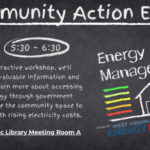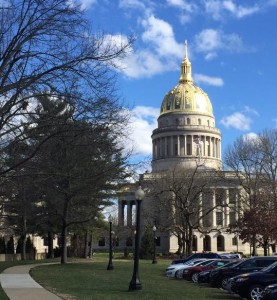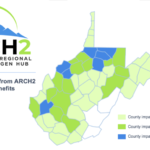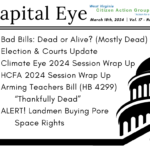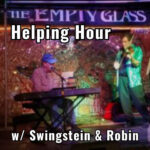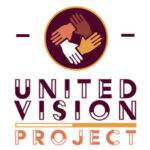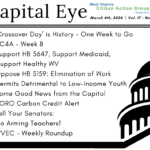- Like
- Digg
- Del
- Tumblr
- VKontakte
- Buffer
- Love This
- Odnoklassniki
- Meneame
- Blogger
- Amazon
- Yahoo Mail
- Gmail
- AOL
- Newsvine
- HackerNews
- Evernote
- MySpace
- Mail.ru
- Viadeo
- Line
- Comments
- Yummly
- SMS
- Viber
- Telegram
- Subscribe
- Skype
- Facebook Messenger
- Kakao
- LiveJournal
- Yammer
- Edgar
- Fintel
- Mix
- Instapaper
- Copy Link
Once again, we hope you enjoyed another beautiful weekend! It seems Punxsutawney Phil may have been right this year, and Spring is coming early.
Below is our latest “Capital Eye” update! We apologize for what is supposed to be a “weekend” update coming to you late this Monday afternoon, but as you’ll see while reading the updates below, our staff had an extremely busy weekend.
Regardless of our “tardiness”, we hope you’ll still take some time to read up on what’s been happening at the Capitol and take action!
Capital Eye

Triage
by: Gary Zuckett
Wednesday is “crossover day” when all bills must be voted out of their house of origin (Senate or House of Delegates) and pass over to the other, or be considered “dead.” I put dead in quotes because there are numerous ways for leadership to resurrect a bill after crossover, but these zombie bills are a topic for another week. Triage is the word this week – the wholesale scrapping of all bills leftover on committee dockets on crossover day.
Judiciary is the busiest committee in both houses. Senate Judiciary still had 234 bills on its docket as of Sunday, and House Judiciary had a whopping 406 languishing. As mentioned in previous weeks, this triage is mostly a blessing as many of these proposals should go directly to the recycle bin. The bad news is that many of our good efforts will join them.
Unfortunately, the LEEP bill (SB 370) was in trouble this weekend. FirstEnergy had it taken off the Senate calendar and thrown into the parking lot of the Senate Rules Committee. Ironically, it appears as if our LEEP bill has died on Leap Day. Emmett has the details on this drama; see his article below.
Several bills of the Our Children, Our Future policy platform look like they’ll make the Wednesday triage. Second Chance for Employment and the Provisional Driver’s License bills are on the Senate calendar for passage to the House.
The APRN bill to allow Advanced Practice RNs to practice independently is also going to have a chance in the Senate after passing the House Saturday. However, lots of really terrible stuff will also crossover that we’ll be fighting to the end.
The ‘Right to Discriminate’ bill (HB 4012) has already passed the House, moved through Senate committees, and is now on the Senate floor for an up or down vote. See here for quick action on this one.
Not satisfied with the Governor’s proposal to cut severance taxes on coal and oil and gas by 110 million next fiscal year that has already passed the House. I’m listening right now to Senate Finance originate a bill to cut an additional 2% from coal severance over the next two years costing the state another 40-million in 2016’s budget and 80 in 2017. This is the way our legislative leadership is working to fix the $350 million hole in the state’s current budget deficit and the predicted even larger pot of red ink next year – cutting taxes on coal and oil and gas and adding taxes to tobacco, services, and other items that we all pay? Remember in November!
Oil and gas frackers are busy promoting a mess of bills that will take away land and mineral owners’ rights and give them to industry. See Julie’s article for the scoop on these bad boys.
This mess leads to another level of triage. Our lobby team (and other progressive groups) must make daily decisions on which bills to fight in what committees all the while working to move our own agendas. This is even more complicated as usually both House and Senate floor sessions run concurrently and, when not on the floor, both houses can have multiple committee meetings that often overlap. This makes even the most seasoned lobbyist wish for a clone or two when they have bills of concern up in two or three committees at once.
The sheer number of bills on our “watch list” has grown steadily since day one, which actually makes us look forward to the triage of crossover when we can whittle down our list and focus on bills that are moving toward completion for better or worse.
If this all seems confusing and overwhelming, well, it often is. We take it day by day and move from one crisis to another as bills we thought wouldn’t move suddenly show up on a committee agenda. Every morning’s list of agendas provides much of that day’s marching orders. Now lawmakers have gone to working weekends, so we’ve been under the Capitol dome for eight days straight as of today.
During the down time between floor sessions and committee meetings is when we seek out legislators to lobby on the benefits of our bills and the problems with the other side’s agenda. Of course, many of the 450+ registered lobbyists plus administration officials and citizen advocates are all seeking time with lawmakers too. This is often a “hurry up and wait” situation.
Our friends (especially ones who have previously lobbied) often ask us how we can continue to fight against the odds up there. We often ask ourselves that same question during our happy hour sessions with other allied lobbyists. The short answer is if we weren’t up there fighting tooth and nail against all the greed, avarice, and just plain dumb ideas, there would be so much more damage done – to our state and its citizens. And we have our victories – fewer than we’d like but often enough to keep us going!
The other thing that keeps us going is you – our citizen activists and supporters. Come down when you can to see the process and lobby your hometown lawmakers. See the note for the “Remember in November” Rally the last day of the session and show up then too. Keep those membership donations coming into the web page or to 1500 Dixie St. Charleston, WV 25311. Our thanks go out to all who have become new members or renewed long-time membership! We appreciate you all and thank you for taking action in whatever way you can!
Several Bills to Aid Drillers Working Their Way Through the Legislature
by: Julie Archer
Last week we told you about three terrible bills working their way through the Legislature that help oil and gas drillers at the expense of West Virginia landowners. In this update, we’ll fill you in on where these bills are in the process and let you know about two other bills that have gotten momentum since then.
The most concerning is SB 508, a bill that undermines our property rights by taking away the ability to file nuisance suits against oil and gas drillers and others whose activities devalue and interfere with our enjoyment and use of our property. This bill has passed the Senate and is now in the House Judiciary Committee. Read morehere and here.
If SB 508 passes, property owners would be left with no legal recourse to hold irresponsible neighbors accountable for their actions. We can’t let the Legislature take this right away. Click here to send a message to Delegates telling them to vote No on SB 508. Tip: Personalize the pre-written letter; it’ll mean so much more to legislators!
Another bill that has passed the Senate is SB 565, which would allow drillers to build well pads and access roads on a surface owners land without getting a we’ll work permit. Instead, drillers would apply to build the pad and roads under a general water pollution control permit for oil and gas related construction activities issued by the DEP Division of Water and Waste Management (DWWM). There are two problems with this.
First, Stormwater Pollution Prevention Plans (SWPPPs) are not engineer approved, or subject to an engineering review by the DEP. SWPPPs are only intended to control sediment and DWWM only reviews the plans for how well they will keep sediment from the construction site from entering rivers and streams.
Second, the stormwater permit is only in effect during construction. This means if the pad or access roads are poorly built and problems arise after construction is complete, and the driller has not yet applied for and received a well work permit, the DEP may be left with no way to make the driller correct these problems.
The good news is that DEP Secretary Randy Huffman has voiced opposition to SB 565, which is now before the House Energy Committee. Here are email address for House Energy Committee members:
woody.ireland@wvhouse.gov, randy.smith@wvhouse.gov,mike.caputo@wvhouse.gov, dave.pethtel@wvhouse.gov,george.ambler@wvhouse.gov, bill.anderson@wvhouse.gov,brent.boggs@wvhouse.gov, anna.border@wvhouse.gov, scott.cadle@wvhouse.gov,ray.canterbury@wvhouse.gov, jeff.eldridge@wvhouse.gov,david.evans@wvhouse.gov, kayla.kessinger@wvhouse.gov,dana.lynch@wvhouse.gov, john.mccuskey@wvhouse.gov, tim.miley@wvhouse.gov,joshua.nelson@wvhouse.gov, rupert.phillips@wvhouse.gov,delegatedoug@yahoo.com, roger.romine@wvhouse.gov, joe.statler@wvhouse.gov,erikka.storch@wvhouse.gov, jill.upson@wvhouse.gov, phyllis.white@wvhouse.gov,mark.zatezalo@wvhouse.gov
The other bill we told you about last week, was a bill advanced by the House Energy Committee approved a bill that would allow drillers to lease jointly owned or heir-ship mineral tracts if a simple majority of owners agree to sign – changing existing common law that currently requires all owners with an interest in tract to sign before a company can execute a lease. Read more here. HB 4639 appeared to be on the fast track, but on Monday the House voted to send the bill to the House Judiciary Committee for further scrutiny and by the end of the week was declared dead by Delegate Woody Ireland, whose committee had originated the bill. That’s the good news.
The bad news is that an even worse version of this forced leasing legislation is now moving in the Senate. Like, HB 4639, for surface owners who only control a small portion of the minerals under their property, SB 646 would allow the wishes of these surface owners to be ignored if a little more than 50 percent of their co-owners in the mineral tract make a deal with the gas company. Additionally, SB 646 would allow tracts to be pooled into units without surface or mineral owner agreement, and allow a surface owner’s land to be used for one of those monster pads for horizontal drilling even if there was a “no surface use” lease. The bill says, “The operator’s use of any surface tract overlying the jointly developed leases shall be permissible for that joint development.”
As the WV Royalty Owners said in a statement last week, “This isn’t just forced pooling, this is forced pooling on steroids. Last year some [legislators] were concerned that force pooling would force 20 percent to lease. This bill forces 49.9 percent to lease with no prohibition of deductions, no depth or target formation limitations, no surface protection, and no recourse against the driller.”
Like SB 508, SB 646 is yet another shameful attempt to take away the property rights of West Virginians. This terrible bill is on the Senate Judiciary Committee Agenda today. Please contact Senate Judiciary Committee members and your Senators and tell them to “Vote No on SB 646.” Here are emails for the Senate Judiciary Committee members:
charles.trump@wvsenate.gov, bob.beach@wvsenate.gov,art.kirkendoll@wvsenate.gov, ronald.miller@wvsenate.gov,corey.palumbo@wvsenate.gov, mike.romano@wvsenate.gov,herb.snyder@wvsenate.gov, bob.williams@wvsenate.gov,mike.woelfel@wvsenate.gov, Mitch.Carmichael@wvsenate.gov,ryan.ferns@wvsenate.gov, ed.gaunch@wvsenate.gov, robert.karnes@wvsenate.gov,Kent.Leonhardt@wvsenate.gov, Mark.Maynard@wvsenate.gov,bob.ashley@wvsenate.gov, sue.cline@wvsenate.gov, greg.boso@wvsenate.gov
Earlier in the week, this Committee passed out SB 596, which would give pipeline companies planning the interstate pipeline projects the right to access private property for the purpose of surveying without getting landowner permission. Currently, there are several such pipeline projects at various stages of development that will cross portions of West Virginia. The bill effectively reverses a Monroe County circuit court decision regarding survey access for these pipeline projects.
The pipeline companies had been relying on and citing West Virginia’s eminent domain statute saying it gave them survey access before an eminent domain proceeding has been initiated. That statute says eminent domain can only can only be for a “public purpose”.
In the Monroe County case, the judge ruled that the Mountain Valley pipeline was not for a public purpose and therefore the pipeline company didn’t have a right to survey people’s land without their permission.
SB 596 gives pipeline companies who have made application and been assigned a docket number by FERC the right to enter for survey activities. The bill does require notice to all owners and occupants 15-60 days before entry, requirements that do not currently exist. The bill also limits surveyors to the use of hand tools, and prevents driving or parking motor vehicle on the property without permission.
SB 596 was voted on by the full Senate earlier today and defeated in an 11-23 vote! Click to see how your Senator(s) voted.
Thank you for contacting your legislators about these terrible bills. We’ll continue to keep you posted, so stay tuned!
2016 is a Leap Year, but unfortunately, it was not LEEP’s year
by Emmett Pepper
As you may recall, the LEEP Act (SB 370) is the top priority of EEWV this legislative session. It is a bill that allows local governments to create a funding mechanism for energy efficient upgrades to commercial buildings from private financing. The bill has strong, bipartisan support in each house of the legislature because it helps local businesses improve the efficiency of their buildings and help the businesses that make the upgrades.
After sitting on the plate of the Energy Industry and Mining Committee for weeks, it was finally put on the agenda, unanimously approved, and sent to the full Senate. In a surprise last-minute move on the Senate floor, the bill was assigned to the “Rules Committee.” The Rules Committee is where the Senate Leadership puts bills that it wants to put the brakes on and, like purgatory, sometimes a bill never leaves.
It turns out that the lobbyists for FirstEnergy (parent to Mon Power and Potomac Edison) and AEP (parent to Appalachian Power) killed the bill by asking for it to go to the Rules Committee, basically because they could, due to their power in the legislature. They never showed up to any committee meetings and voiced opposition, never spoke to the sponsors of the bill or chairmen of the committees. They waited until the last minute and then had the bill removed because, according to them, the utilities — not local businesses and governments — should decide all energy efficiency decisions.
Their vulgar display of power did, however, leave a bad taste in the mouth of some very prominent senators, who felt it was not in good faith to oppose a bill that will have very little impact on them. We have gotten a commitment from Senate leadership that the bill will not have these ridiculous problems again next year.
While it is easy to get cynical about politics and assign negative attributes to people we disagree with, as Forbes recently covered, energy efficiency is a nonpartisan, widely popular concept regardless of your political stripe. It is too bad that our utilities continue to push for higher rates and against better efficiency programs, and then turn around and oppose making it easier for businesses to make improvements to their buildings. The work that EEWV does is targeted to fight against the utilities that care more about their own bottom line, to the detriment of regular West Virginians, including small businesses.
Oh, SNAP!
by: Ciera Pennington
At the beginning of the year, Governor Tomblin imposed a pilot in nine counties across the state that would require Supplemental Nutrition Assistance Program (SNAP) – also known as Food Stamps – recipients to work 20 hours a week if they are able-bodied adults between the ages of 18 and 50; this pilot does include exemptions for individuals with dependents or who have mental or physical disabilities. During session, our legislature has been continuously proposing bills that would create stricter requirements and reduce SNAP benefits even further. While these work requirements may sound good, there are major issues we should consider before implementing such requirements.
The American Friends Service Committee of WV (AFSC-WV) has outlined these facts:
- There are nearly 90,000 adults in West Virginia who would be affected by these work requirements; many are working but cannot find 20+ hours of work per week, as required by the current pilot. Many others are actively seeking work but haven’t found it yet.
- A strict 20 hour work week requirement would be workable if the DHHR could guarantee all cooperative adults placement in jobs, workfare, or recognized job training programs and supportive services (such as transportation assistance); unfortunately, DHHR cannot and does not have capacity to do case management for everyone who would be affected.
- Under the current pilot, there is no guarantee that people will not be cut off even when they qualify for exemptions or who use volunteer hours to meet the 20 hour work requirement.
- State food pantries, soup kitchens, and local charities are stretched to the limit already and fear these restrictions.
- The boost to our economy doesn’t come out of our state budget, as SNAP is a federal program; these SNAP restrictions could cost the state about $70 million a year, much of it spent at local grocery stores and farmers markets.
Before we go through with enacting strict work requirements on SNAP recipients, we should consider these facts and put more time and thought into getting this right. We don’t want to harm these 90,000 people, the majority of which have incomes below half of the poverty line.
Help our partners at AFSC-WV make these concerns heard by sharing your story!Tell us about your SNAP experience(s) here.
How has SNAP helped you? Have you had issues with the work requirements? Have you been unable to find work? How has DHHR been helpful or unhelpful with your SNAP benefits? What else can you share with us that may help make legislators understand the importance of SNAP and getting changes to work requirements right?
Don’t have a story of your own? Share the form with others who may. The more stories we collect the easier it will be to prove to legislators these sort of requirements hurt West Virginians all across our beautiful state.
Time to stop the “witch hunts” on the poor
I’m sure many of you heard of SB 6 – the TANF drug-testing bill – earlier in session; it passed the Senate in a 32-2 vote earlier this month and is to be taken up soon in House Judiciary (actually, there is a Public Hearing on the bill this Friday, March 4th at 9 am in the House Chamber). This bill, like those proposed around SNAP, is another “witch hunt” for fraud at the expense of demonizing and hurting poor people. Time and time again, these “witch hunts” on welfare recipients have cost other states thousands of dollars to find few recipients using drugs. Yet, here we are trying to enact the same thing that’s been a major fail for other states!
As someone who grew up in a low-income family, I take these bills and accusations personally. We used SNAP for years, Medicaid for as long as I can remember, and applied for TANF when things got rough. My mother and step-father worked hard to keep a roof over our heads and food in mine and my four siblings mouths. My family’s story is the same as many across our state and nation. It’s not the story of people trying to abuse the system or get “handouts”, but the story of a flawed system that works to keep the poor poor and the rich rich.
I propose our legislature stops focusing on SNAP work requirements, TANF drug-testing, and other “witch hunts” (like this one I didn’t mention, but you should read up on!) and starts focusing on things that really matter, such as fixing our budget problems and avoiding cuts that could lead to more families suffering. Demonizing the poor and searching for fraud is doing nothing to help our families, economy, or state; instead, it’s leading to further hurting and alienating those in poverty. This is NOT okay!
We’re known for our kindness and compassion; it’s time we extend this to allMountaineers regardless of income or ability to find work!
Upcoming events:
- Tuesday, March 1st|8-8:30 pm: Democracy Awakening’s Tele-town Hall
- Thursday, March 10th | 6-10 pm: West Virginia Environmental Council (WVEC) Awards Dinner
- Saturday, March 12th | 4 pm: Remember in November, Last Day of Session Rally

Thanks for staying informed! Please help your friends and family do the same by sharing this update via our Facebook and Twitter.



